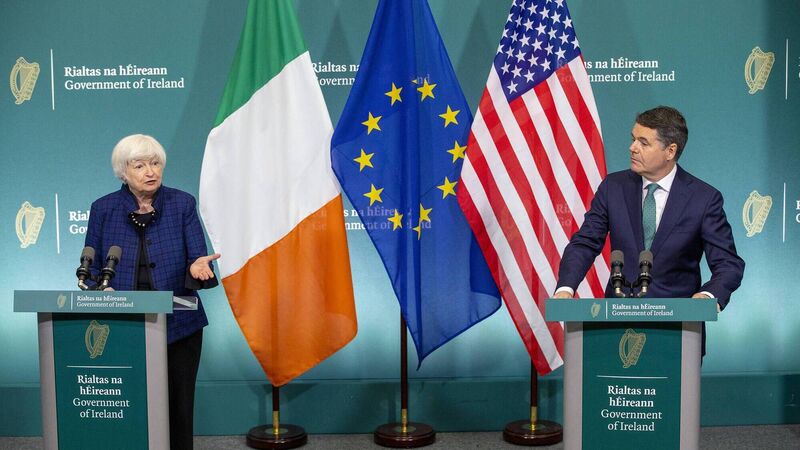Ireland faces long road to understanding fallout from global tax overhaul

US secretary of the treasury Janet Yellen was in Dublin this week for talks with Finance Minister Paschal Donohoe on global tax and other issues.
The fallout from the overhaul of the global tax regime for Ireland will only become clearer in the coming months, experts at home and abroad have said.
The Government last month signed up to an agreement to increase the tax on multinationals and large companies to 15% – up from the existing headline rate of 12.5% under Ireland’s long-standing regime.










